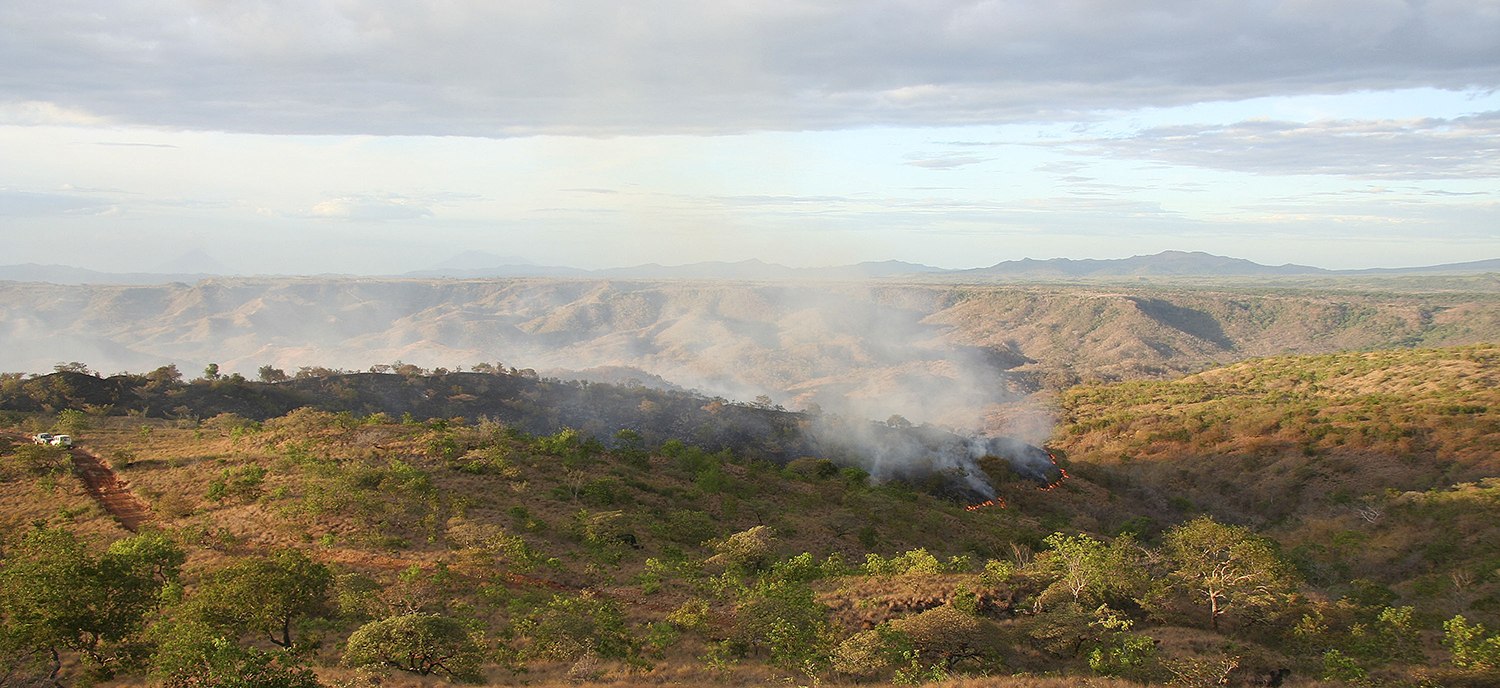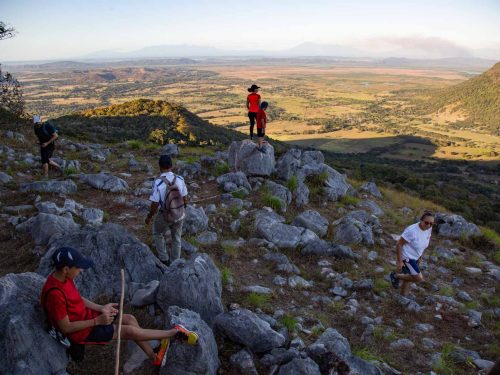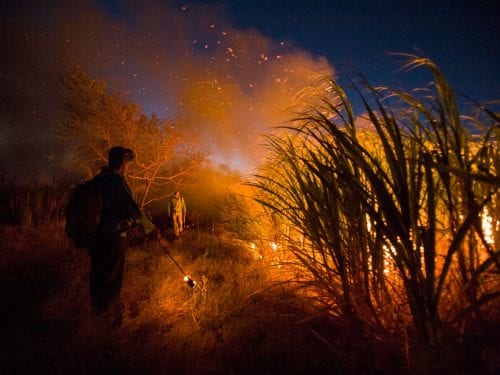
In Guanacaste and all of Costa Rica, controlling forest fires is an activity regulated by SINAC (for protected areas) and firefighters (for private areas). Although both institutions agree that they lack some resources, the main threat they face is the lack of caution that exists in the country.
To Luis Diego Roman, coordinator of SINAC’s National Fire Management Program, the great challenge in the province of Guanacaste is to raise awareness of the danger of using fire in agriculture or in burning trash.
“Resources are lacking to strengthen prevention, to work with society. In Guanacaste, the use of fire is a very cultural issue and with the winds that are occurring, a spark can escape and turn into a huge fire. We must work hard with society,” Roman commented.
In 2014, 30,440 hectares (75,220 acres) in the country were affected, both in protected areas and private properties. Of this total, 25,951 hectares (64,126 acres) were in Guanacaste, which means that almost 80% of the fires occurred in just this province.
Eithel Barrantes, deputy fire chief in Nicoya, explained that another problem that arises in Guanacaste is that not all farmers have their pastures cut down close to the ground in their properties.
“We have to improve the concern of the farmer himself. The farmer should keep his farm very clean, weeding, removing leaves. If a farmer has a very clean property, it ensures that if any neighboring property catches fire, that’s as far as the fire will get,” Barrantes assured.
Lack of education on burning is one of the weak points in which the national government has failed, according to Luciano Capeli, director of the campaign Un Verano sin Incendios Forestales (A Summer Without Forest Fires). “I sincerely believe that the state has dedicated very little attention to the subject of forest fires. All of educational and prevention work that was done up until two years ago in the country was the work of individual wills, not of a coordinated plan supported by the state,” Capeli said.
Putting Out Fires with Laws
According to Roman, since the previous government, they have been working on a project in the Legislative Assembly called the Integral Fire Management Law, with which financial support would increase.
“We can’t hide the sun with a finger. Yes, resources to control fires are lacking, especially human (resources). To control fires nationwide right now, we only have 300 officials. That’s why volunteer forest brigades help us,” Roman commented.
In addition, with an economic increase, SINAC could have more technology at their disposal, such as buying specialized cameras that detect the presence of fire. Also forest fires could be punished as criminal offenses.
On the other hand, the country has made positive advancements. Nicoya’s deputy fire chief related that a little more than six months ago, there was an increase in the installation of fire hydrants, which were previously scarce. According to Barrantes, just in the canton of Nicoya, 50 hydrants were installed, distributed both downtown and in surrounding areas.
“A great effort is made in the country, but sometimes it is very hard. Controlling fires is an issue that must be faced, but the problem is that sometimes administrations change and nothing gets done,” Roman concluded.







Comments